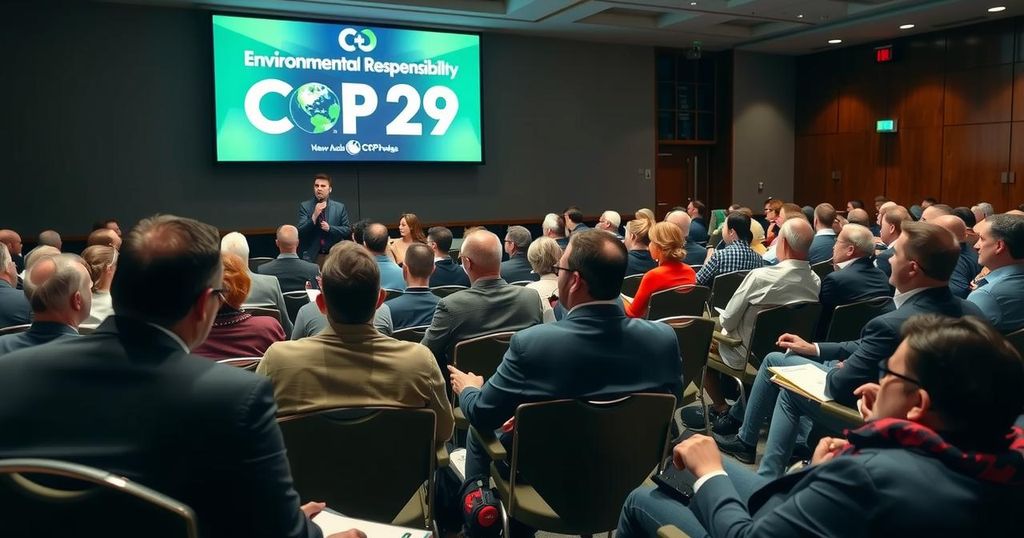COP29 ended with developing nations decrying the inadequate climate finance commitments, specifically the NCQG resolution which promises only $300 billion annually compared to the $1 trillion demanded. Significant procedural issues and differing perspectives on funding responsibilities exacerbated tensions, illustrating the urgent need for reform in global climate finance as trust between nations continues to wane. The outcome reflects a broader failure to adequately address the climate crisis, calling for more substantial and sincere cooperation at future summits.
At the recently concluded COP29, developing nations expressed strong discontent with the NCQG resolution, deeming it insufficient in addressing the severe climate challenges they face. India’s negotiator, Chandni Raina, succinctly articulated this sentiment, stating that the document amounted to an “optical illusion” and failed to meet the urgency of climate action needs. With developing nations demanding annual mobilization of $1 trillion for climate action, the resolution’s agreement to generate only $300 billion annually until 2035 highlights a stark disparity in recognition of climate finance requirements.
The conference was primarily focused on climate finance, yet it revealed significant gaps in commitments. Past targets, including the goal set in 2009 to mobilize $100 billion by 2020, had been repeatedly missed, demonstrating a concerning trend of unfulfilled promises by wealthier nations. At COP29, developed countries did not adhere to the principles of shared responsibility in addressing climate issues, further undermining trust in international cooperation.
The discussions highlighted a conflict over accountability for funding sources and amounts that developed nations owe to their developing counterparts. While there are calls for financing primarily from public sources and grants, developed countries remain hesitant, arguing the need for practical targets despite a moral and ethical obligation to support those most affected by climate impacts.
Compounding the issue, procedural irregularities during the conference, including allegations of rushed resolutions and exclusionary negotiations, contributed to dissatisfaction among developing countries. The divide was stark as developed nations painted the outcome of COP29 as a success, while developing countries viewed it as a failure, necessitating urgent reforms in climate finance strategies heading into future negotiations.
Overall, COP29 failed to deliver meaningful commitments which could establish a foundation for addressing the impending climate crisis. The next COP, scheduled in Brazil, must confront these ongoing challenges to formulate a robust strategy for equitable climate action and financing.
The United Nations Climate Change Conference, COP29, focused on establishing a New Collective Quantified Goal (NCQG) for climate finance, intended to address needs for mitigation and adaptation in light of escalating climate impacts, particularly for developing nations. Historically, climate finance commitments have fallen short, with developed nations often under-delivering on pledges made during prior summits. The discussions at COP29 underscored the pressing need for substantial funding to support developing countries most affected by climate change, amidst ongoing debates surrounding who carries the financial responsibility.
In summary, COP29 has laid bare the inadequacies of international climate finance commitments, with significant discrepancies between the pledged and necessary funding levels. The divide between developed and developing nations remains pronounced, as wealthier countries continue to struggle with their moral responsibilities regarding climate action. As global climate discourse progresses, it is essential for future conferences to deliver on promises of equity and cooperation, ensuring viable pathways for funding and adaptation for those most vulnerable to climate change impacts.
Original Source: www.orfonline.org






